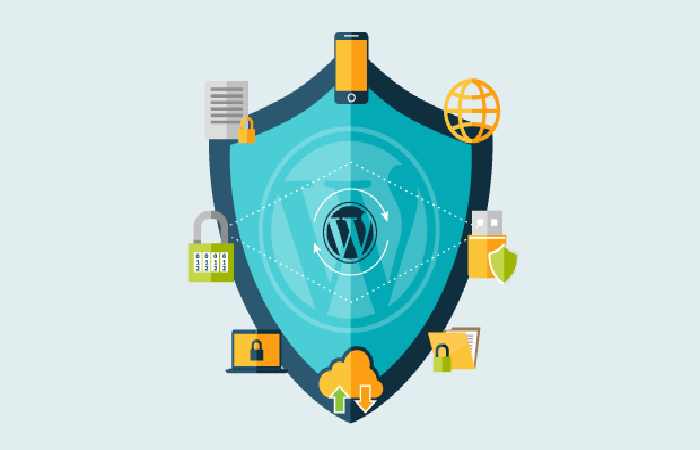Promote Security on your WordPress Site
WordPress is one of the world’s most popular content management systems (CMS), powering more than 44% of websites. As with any online platform, security should be at the top of your list of concerns. In this post, we address WordPress security concerns and provide tips on how to keep your WordPress website safe and secure.
Most of the time, yes. WordPress developers work hard to secure their platforms with regular updates and patches. However, since WordPress remains open-source, hackers can analyze its construction and often devise new ways to gain control of WordPress websites. Because of this, WordPress security is vital. To better understand how to protect your website, it is essential to understand the risks associated with using WordPress.
Website security is vital, mainly if your website processes personal data. And while WordPress has basic security features, there are some extra steps you need to take to make sure your website is impervious to hackers and bots.
This article presents some best practice tips to help you improve the security of your WordPress site.
Update your WordPress security
Table of Contents
● Choose a Good Web Host
Your web host is the first line of defense against attacks on your website. That’s why you want to ensure you don’t settle for the cheapest hosting option. Instead, you should do your homework and find a reputable host.
A reputable web host will support the latest versions of core web technologies such as PHP and MySQL. Your web host should also support PHP 7, the officially recommended PHO version for WordPress.
Additionally, it would help if you considered using a managed WordPress host. Managed WordPress is hosting designed to consider all significant technical aspects, including security, uptime, performance, and backups.
● Install an SSL Certificate
You need to install SSL on WordPress. An SSL certificate makes it hard for hackers to intercept sensitive information between users’ browsers and your server. In addition, Google now insists that all pages have an SSL certificate. It means that if a user is using a Chrome browser and tries to access a website without SSL, they will receive a notification that the website is not trusted. As a result, your web traffic will drastically reduce.
● Choose High-Quality Themes and Plugins
WPScan reports that plugins and 11% by themes cause 52% of all website vulnerabilities. Therefore, it is essential that you only download plugins and themes from reputable sources such as WordPress.org and premium providers. If you are unsure whether a website is safe, you should look for testimonials and reviews to ensure the product is of good quality. Additionally, it would help ensure that all the plugins and themes you use are well supported and updated regularly.
If a plugin or theme isn’t updated regularly, it’s more likely to have security flaws or lousy code that makes it vulnerable to hackers. After all, it would help if you only kept the plugins and themes that you use and need. The more plugins and themes you have, the more likely it is that you will hack. Therefore, you should regularly go through your list, deactivating and deleting the ones you no longer need.
● Update WordPress Core Regularly
WordPress is open-source software developed and maintained by a global community of volunteers. It means that every time there is a new version, the security vulnerabilities fixed.
By default, [WordPress]automatically installs minor updates. However, you must manually update to the latest version for major versions. These basic updates are essential to the performance and security of your site. Therefore, you should secure your spot and apply major updates when they are available.
● Enable Two-factor Authentication
Two-factor authentication makes alternative step in the registration process. As a result, users force to enter a code sent to their mobile phone and credentials. It can prevent automatic attacks and ensure that hackers do not infiltrate your website.
There are smooth plugins like iThemes Security and Two Influence Authentication that tool two-factor authentication for you.
